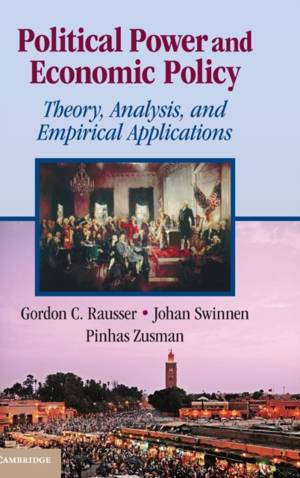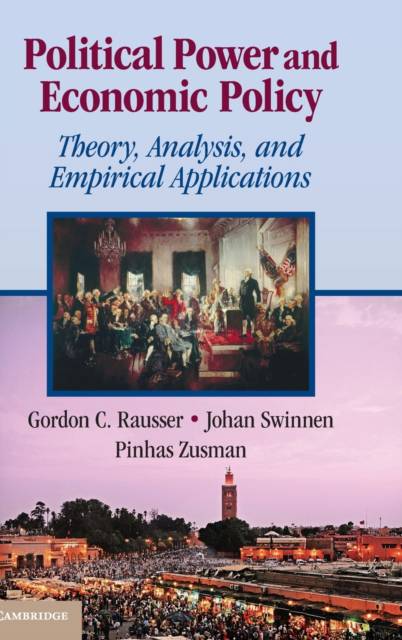
- Afhalen na 1 uur in een winkel met voorraad
- Gratis thuislevering in België vanaf € 30
- Ruim aanbod met 7 miljoen producten
- Afhalen na 1 uur in een winkel met voorraad
- Gratis thuislevering in België vanaf € 30
- Ruim aanbod met 7 miljoen producten
Zoeken
Political Power and Economic Policy
Theory, Analysis, and Empirical Applications
Gordon C Rausser, Johan Swinnen, Pinhas Zusman
Hardcover | Engels
€ 223,45
+ 446 punten
Omschrijving
This book analyzes the links between political economics, governance structures, and the distribution of political power in economic policy making. The book theoretically explains and empirically quantifies these interactions. The analysis includes both public good policies and redistributive policies. Part 1 of the book presents the conceptual foundations of political-economic bargaining and interest group analysis. After presenting the underlying theory, Part 2 of the book examines ideology, prescription, and political power coefficients; Part 3 analyzes a number of specific structures; and Part 4 presents a framework for political econometrics with a number of empirical applications and testable hypotheses. In all four parts of the book, four analytical dimensions of public policy are distinguished: governance structures, political economy, mechanism design, and incidence.
Specificaties
Betrokkenen
- Auteur(s):
- Uitgeverij:
Inhoud
- Aantal bladzijden:
- 536
- Taal:
- Engels
Eigenschappen
- Productcode (EAN):
- 9780521190169
- Verschijningsdatum:
- 30/09/2011
- Uitvoering:
- Hardcover
- Formaat:
- Genaaid
- Afmetingen:
- 152 mm x 236 mm
- Gewicht:
- 498 g

Alleen bij Standaard Boekhandel
+ 446 punten op je klantenkaart van Standaard Boekhandel
Beoordelingen
We publiceren alleen reviews die voldoen aan de voorwaarden voor reviews. Bekijk onze voorwaarden voor reviews.











